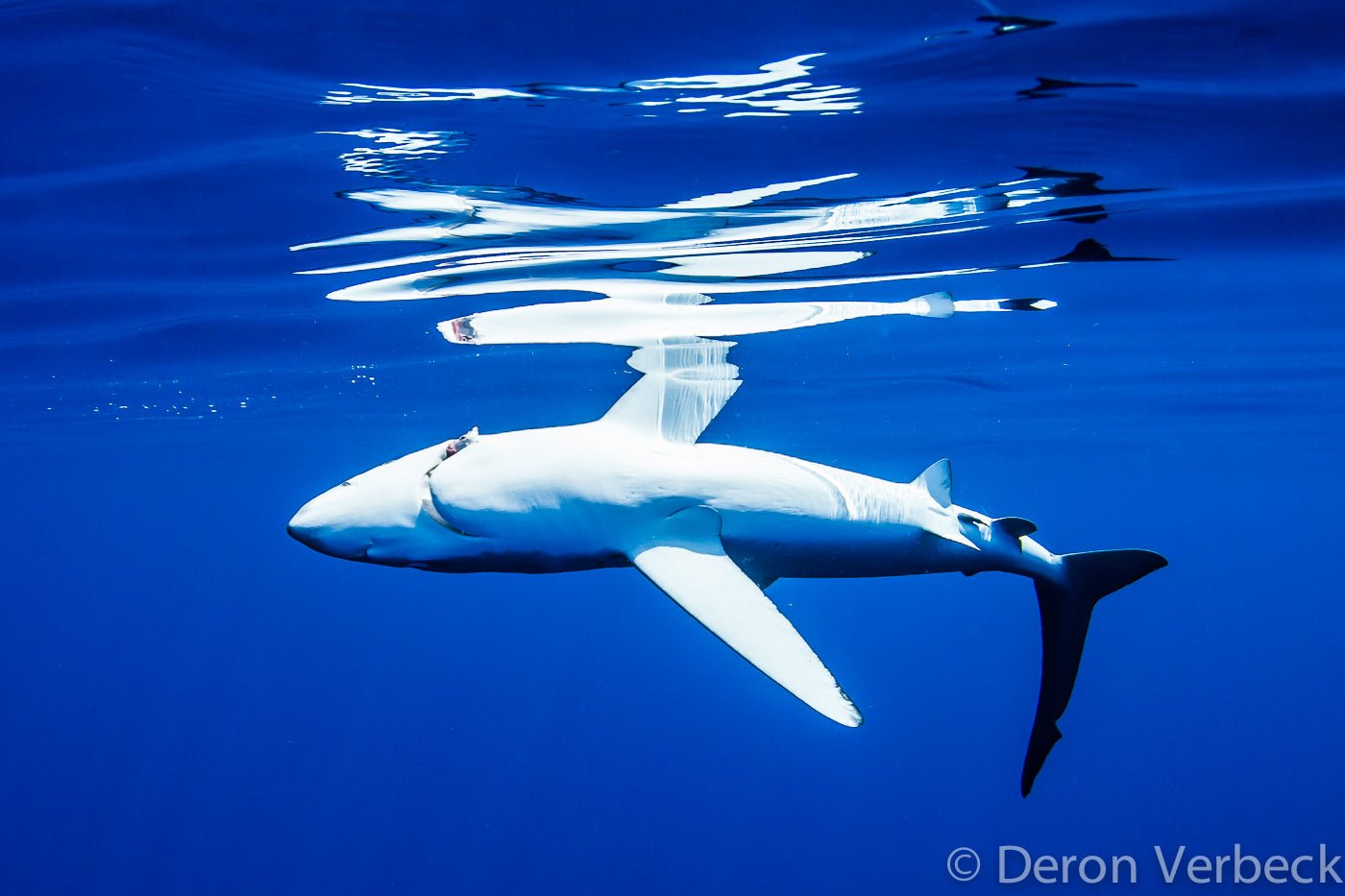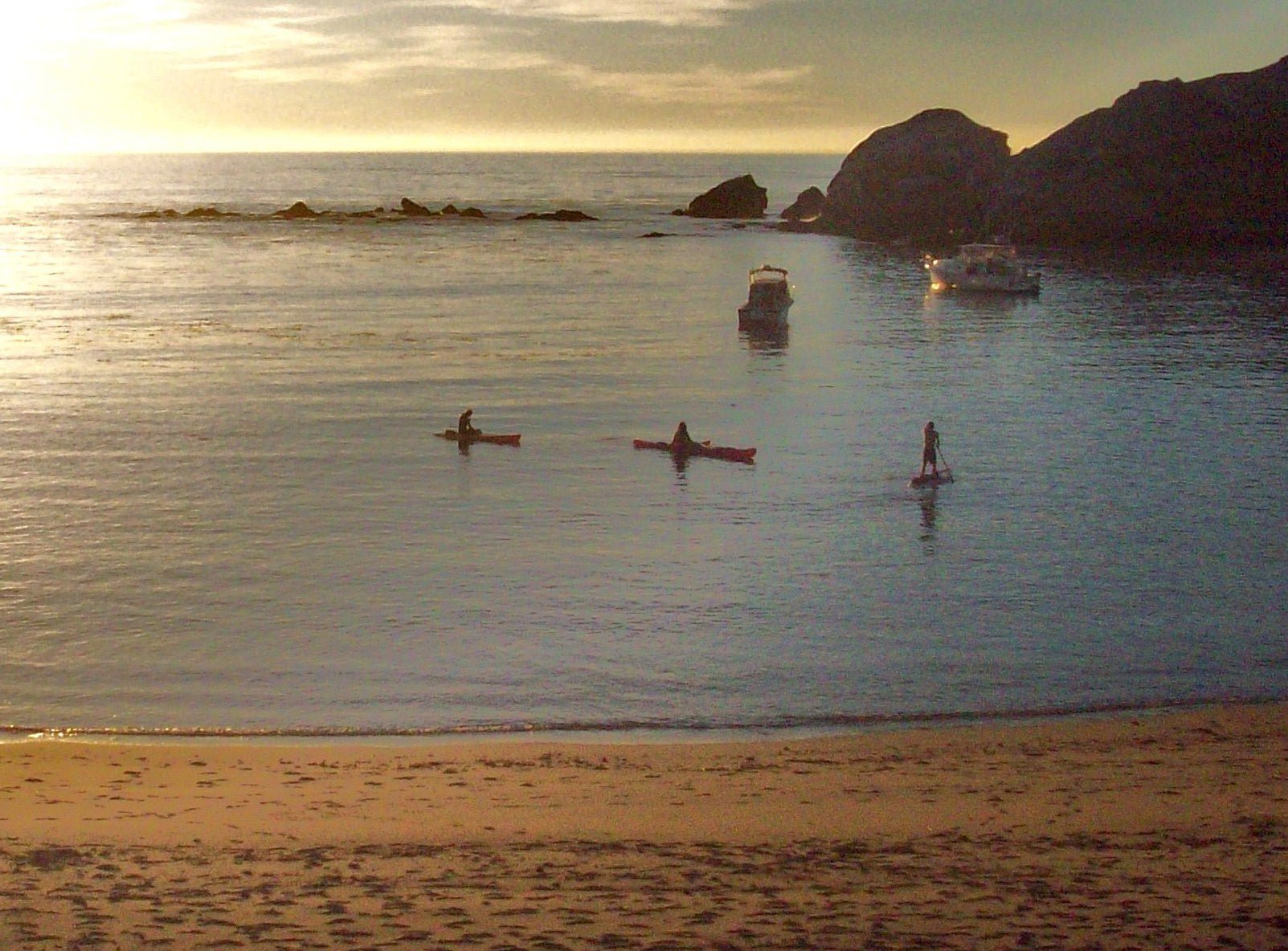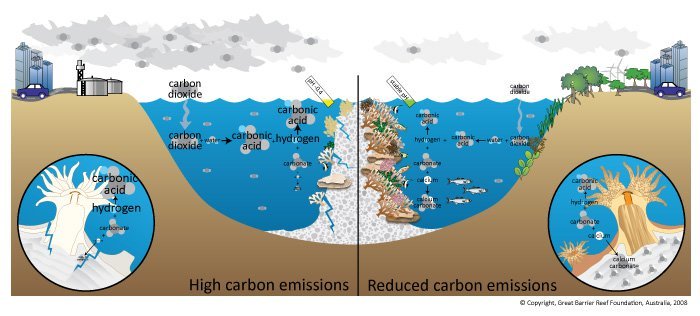
The 7 Biggest Threats to Our Oceans: Threat #2 Predator Depletion
“Think of it like the Serengeti, with lions and the antelopes they feed on. When all the lions are gone, there will be antelopes everywhere. Our oceans are losing their lions and pretty soon will have nothing but antelopes.”
Villy Christensen of University of British Columbia’s Fisheries Centre
“The big fish, the bill fish, the groupers, the big things will be gone. It is happening now. If things go unchecked, we'll have a sea full of little horrible things that nobody wants to eat. We might end up with a marine junkyard dominated by plankton.”
Dr. Daniel Pauly and others, "Fishing Down Marine Food Webs" SCIENCE Vol. 279

Within the past 100 years, nearly 2/3 of the oceans predator fish have disappeared. Well, they haven’t really just disappeared; they have been overly consumed by humans, causing their populations to plummet.
One of the predators that has been hit the hardest of all is the shark. Why? One of the biggest reasons has been Shark finning, which is a brutal practice. What is shark finning? It is just what it sounds like, catching a shark, chopping off its fins, and then tossing the still live shark back into the ocean where it bleeds out and eventually drowns.
It is estimated that up to 100 million sharks suffer this fate each year. Why? This practice exists for one reason; it is a status symbol and tradition to consume shark fin within many
Asian countries. The fin has no nutritional value, nor is it described to have much flavor. With China’s growing economy and population, more and more people are able afford this delicacy, which can sell for up to $300 a pound. With a high demand and a huge profit, the shark

population has declined considerably in recent years. Some experts predict that if the killing continues at the current rate many species will be lost forever.
The shark is not the only victim however. Several other species, including Bluefin Tuna, Atlantic Salmon, and Cod are all disappearing at alarming rates. All these species are apex predators, meaning they sit towards the top of the food chain, and have few predators of their own. They are responsible for keeping the rest of the food chain in balance. Because they do have so few predators, and thanks to the Laws of Natural Selection, these species reproduce, grow, and mature at a slower rate, therefore their populations are slow to replenish.
The loss of the predators of the sea has already taken a cascading effect on marine ecosystems. Apex predators play a vital role in the oceans in a way that the average fish does not. They hunt the old, the weak, and the sick, keeping the populations healthy. They groom many populations of marine life to the right size so that those prey species don’t cause harm to the ecosystem by becoming too populous.

For example, scientists in Hawaii found that tiger sharks had a positive impact on the health of sea grass beds. Turtles, which are the tiger sharks’ prey, graze on sea grass. In the absence of tiger sharks, the turtles spent all of their time grazing on the best quality, most nutritious sea grass, and these habitats were soon destroyed. When tiger sharks are in the area, however, turtles graze over a broader area and do not over-graze one region.
So, what can we do about predator depletion? Two things:
#1 - Keep a conscious eating practice when dining out by choosing lower on the food chain, choosing wild, sustainably caught over farm raised, and try to make a selection from local waters. There are several apps available for all you smart phone users such as the Seafood Watch iPhone app and the EDF Seafood Selector app.
#2 - Join and support organizations that are doing the hard work educating the masses and helping to protect these magnificent creatures, like S.O.S and Sea Save. Checkout their websites, sign their petitions and then share the knowledge of how to protect these apex predators with your friends and family.
If we all just share this knowledge with ten people we can make a difference. As the American cultural anthropologist Margaret Mead stated:
“Never doubt that a small group of thoughtful, committed citizens can change the world; indeed, it's the only thing that ever does”.



Leave a comment
This site is protected by reCAPTCHA and the Google Privacy Policy and Terms of Service apply.